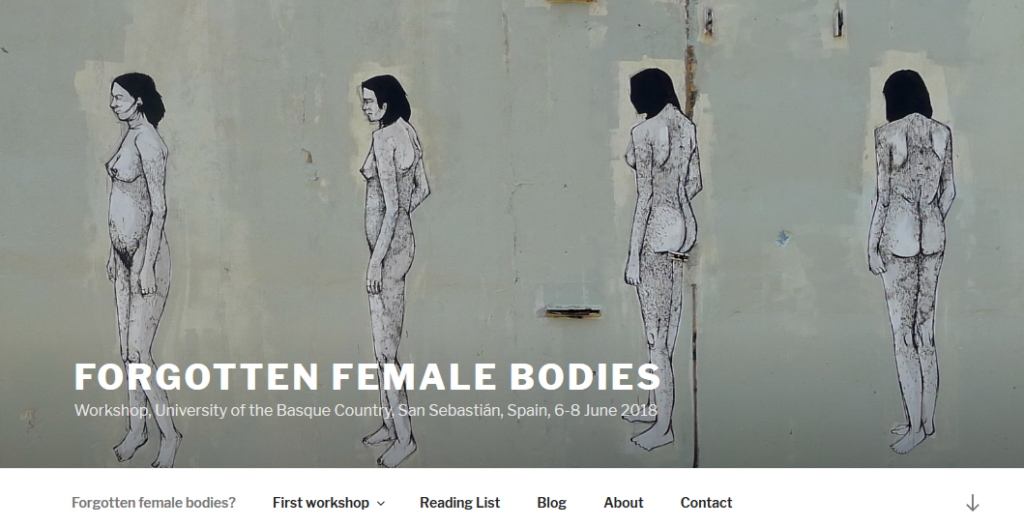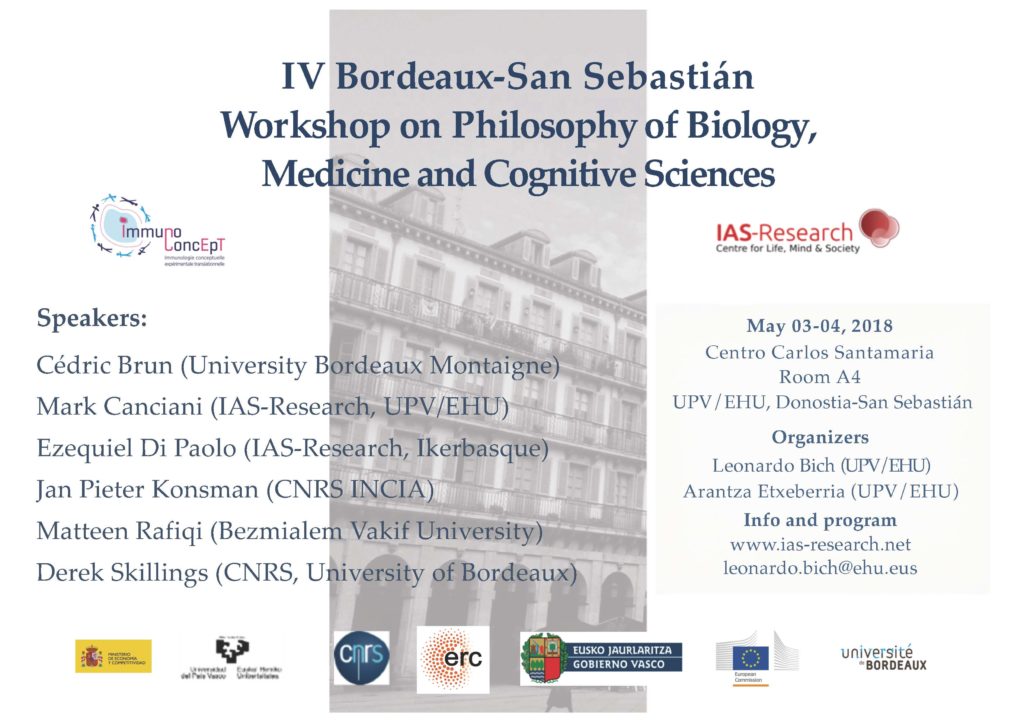Revisiting the “organism/environment interaction” category
Arantza Etxeberria (UPV/EHU)
Tuesday 12 November 2019 at 11:30 (Centro Carlos Santamaria, B14)
Abstract
The “organism/environment interaction” has been an important category in biomedical sciences since the end of the 19th century. It brings forward the view of the organism as an autonomous biological entity, with an internally controlled and regulated physiology, interacting with an environment providing opportunities and viability constraints for its living activities. It is often remarked that organisms can transform or construct these environments according to their needs (dialectical views of development and evolution; niche construction; technologies), or that they need to accommodate their lives and norms to restricted environments in case of disease. This presentation will introduce work in progress intending to examine and discuss the current scientific role of this category in biomedicine. On the grounds of some conceptual and empirical challenges, proposals tending to privilege deeper interconnectivities will be considered. This research is integrated within the Inter-identity Project (Mineco FFI2014-52173-P Research Project on Identities in interaction).



